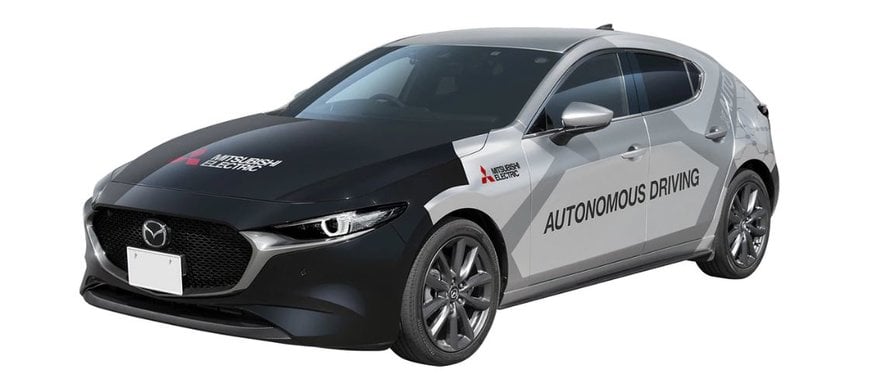www.industryemea.com
29
'19
Written on Modified on
Mitsubishi Electric to Exhibit Autonomous-driving Technologies Incorporated in New xAUTO Test Vehicle
Mitsubishi Electric Corporation (TOKYO: 6503) announced today that it would exhibit the latest version of the xAUTO, a vehicle capable of autonomous driving on surface roads without high-definition maps and autonomous parking both indoors and outdoors, during the 46th Tokyo Motor Show 2019 at the Tokyo Big Sight exhibition complex from October 24 to November 4.

The xAUTO is a demonstration car that incorporates Mitsubishi Electric's cutting-edge technologies for autonomous driving.
Mitsubishi Electric's autonomous driving system is realized with sensor-fusion technologies implemented with peripheral sensors, millimeter-wave radar and cameras, etc. as well as infrastructure-assisted technologies incorporating Centimeter Level Augmentation Service (CLAS) signals from the Quasi Zenith Satellite System and high-definition three-dimensional maps. The system, which is now capable of driving on surface roads without high-definition maps and autonomous parking both indoors and outdoors, has been tested on actual surface roads near Tokyo's waterfront and in the city of Tsukuba, located north of Tokyo.
Going forward, Mitsubishi Electric expects to realize fully autonomous driving in designated areas (Autonomous Driving Level 4) by implementing proprietary traffic-control technologies, which are currently deployed for both railways and aircrafts, and artificial-intelligence (AI) technology, namely Maisart®.*
Features
1)Autonomous driving in local areas without high-definition maps
Centimeter-level vehicle trajectory data, which is measured by using a fusion algorithm with CLAS-based positioning data and other vehicle data, such as speed, yaw rate (degree of lateral movement), etc., is recorded several times. Then, these trajectory data is combined into a high-definition local map for use with the autonomous driving system. As a result, the system can work in places where high-definition maps do not exist, such as residential areas, private roads, farm roads, etc.
2)Accurate positioning and routing for autonomous parking both outdoors and indoors
The xAUTO's Automated Valet Parking System calculates the best driving route to a specified parking space based on an operating plan (parking space location, passage points, etc.) provided from a control system. When parking outdoors, the system traces the calculated route with CLAS-based positioning. Indoors, the system accurately calculates positions by using cameras mounted on the xAUTO to detect landmarks installed in the parking lot.
3)Proprietary sensor-fusion technology constantly detects vehicle periphery fast and accurately
In general, autonomous-driving systems require various sensors, such as radars, cameras, etc. However, since data-processing time and data-update cycles vary depending on each sensor's data-gathering method, recognition errors can occur when differently timed information is processed simultaneously. To overcome this problem, Mitsubishi Electric developed a "sensor-fusion technology" that seamlessly integrates information from various sensors by adjusting the data-output time from each sensor. As a result, the system robustly and accurately detects the situation surrounding the vehicle as well as the vehicle's speed.
www.us.mitsubishielectric.com

